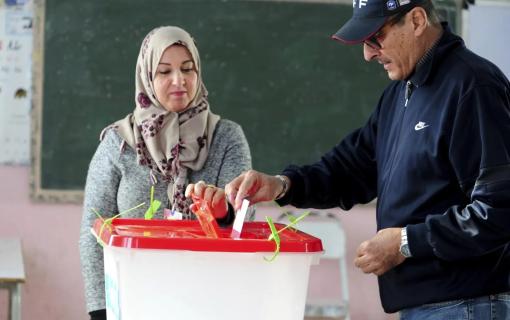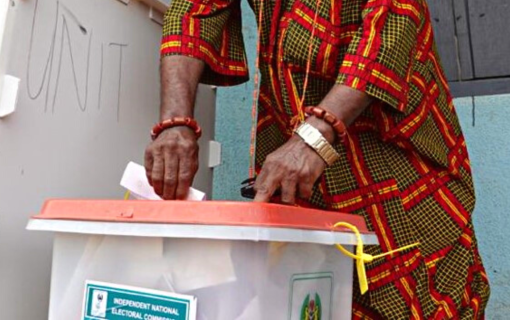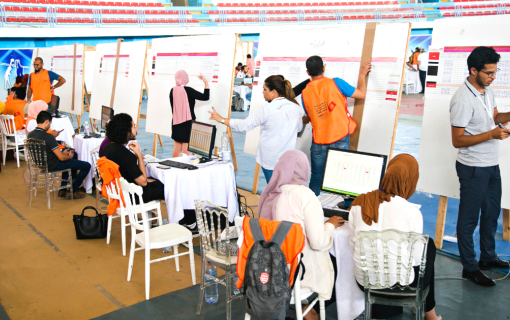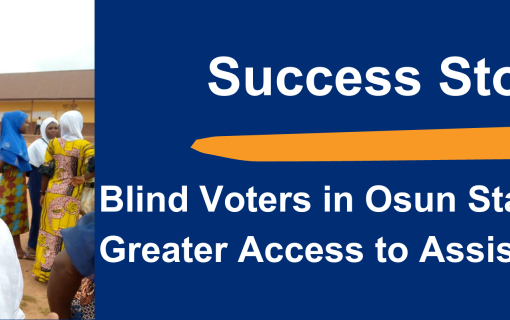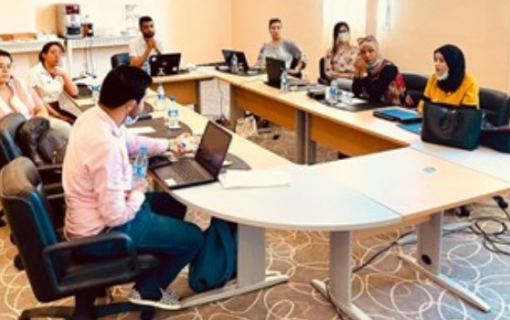
Democracy Promotion is an American Tradition
By William R. Sweeney, Jr., Ambassador Mark Green and Kenneth Wollack
Despite the global trend toward democracy since the 1980s, scholars have chronicled more recent setbacks – often referred to as the “democracy recession." But the news is not all bleak. There have been remarkable democratic advances in recent years in places as diverse as Indonesia, Nigeria, Tunisia, Ghana and Guyana. And U.S. democracy assistance in these and other countries has contributed to peaceful and credible elections, the development of active civil societies, competitive political parties and more accountable legislatures. Reflecting American efforts in promoting democratic development around the world, the Obama administration announced in July that the U.S. will assume the next two-year presidency of the Community of Democracies after being unanimously endorsed by the 27 nations that serve on the Community's Governing Council. This can become an important U.S. initiative in rallying greater international support for fundamental political and human rights. The International Day of Democracy is an appropriate moment to recognize the 15th anniversary of the Community of Democracies and the U.S.’ new leadership role.
Following the rapid transformation of global politics in the late 1980s and early 1990s, democracy burgeoned across the globe and by the turn of the 20th century it increasingly became recognized as the only legitimate form of government. Then-Secretary of State Madeleine Albright and Polish Foreign Minister Bronislaw Geremek saw the need for an intergovernmental organization that would support a new democratic world order and, to that end, co-founded the Community of Democracies in 2000. The organization was grounded in a commitment to democracy and to promoting and strengthening democratic government globally.
Assuming the presidency of the Community of Democracies demonstrates the administration's appreciation of the need to nurture democratic development in the face of the so-called democracy recession. In other words, responding to the recession with a democracy stimulus. On the sidelines of the United Nations General Assembly this month, the U.S. will host the next Governing Council meeting of the Community. As its president, the U.S. will incorporate the priorities of over 100 member states into the organization’s next annual work plan. With declining levels of assistance for democracy programming around the world, the U.S. can help ensure that support for democracy programs remains a priority within the Community.
This is not simply a budget issue, however. Since the Berlin wall first stood, American support for global democracy has transcended party and administration. Indeed, democracy promotion has reflected the convergence of American interests and values. The U.S. government is now committed to leading this forum into the next administration, no matter who wins the 2016 election, with the Community’s next biennial Ministerial Conference to be held in Washington, D.C. in 2017. In his famous 1982 speech before the British parliament, President Reagan asserted, “If the rest of this century is to witness the gradual growth of freedom and democratic ideals, we must take actions to assist the campaign for democracy.” Part of that campaign – led by the Reagan Administration with bipartisan Congressional support – resulted in the founding of the National Endowment for Democracy and our three organizations. In a turbulent environment for democracy, President Obama’s commitment to lead the Community follows in the footsteps of a bipartisan American tradition.
In partnership with the U.S. Agency for International Development (USAID), the International Foundation for Electoral Systems (IFES), the International Republican Institute (IRI), and the National Democratic Institute (NDI) have worked together under the Consortium for Electoral and Political Processes Strengthening (CEPPS) to advance democratic elections and political transitions in new and emerging democracies. This partnership has had measurable results.
Nigeria’s 2015 general elections marked a watershed moment for Africa’s most populous country and largest economy, leading to the country’s first democratic transition of power from one political party to another. In the months leading up the polls, many Africa experts were concerned that violence and a failed election in Nigeria could destabilize not only the country but the entire region. Targeted USAID programs supported capacity building for the election authorities, large scale and innovative election monitoring by Nigerian civil society, a nationwide anti-violence campaign, and political party poll watching. Speaking before an audience at the United States Institute of Peace, Nigeria's newly-elected president, Muhammadu Buhari, commented on these efforts. “The contributions of the IRI, NDI and IFES to the success of the 2015 general elections in Nigeria are well documented," he said. "I would like to use this opportunity to thank them for their partnership and support to the democratization process in Nigeria.”
From the beginning of political change in Tunisia, USAID supported the development of civic organizations and political parties. A national dialogue, an active civil society and progressive political leadership ultimately smoothed the path to a democratic transition. After three rounds of successful elections last year, completing a critical phase of that transition, recent terrorist attacks have now raised concerns about prospects for democratic consolidation. Efforts by extremist groups to rollback democratic advances must be met by both robust security and democracy assistance.
Advancing human rights and democratic governance provide a critical component to any effort to meet an array of global challenges, whether it’s the recruitment drive by the Islamic State, Russian aggression against the sovereignty of neighboring countries, or health crises like the Ebola epidemic that hit West Africa last year. The U.S. can use its position as the president of the Community of Democracies to encourage all members to assist citizens and societies struggling to have a vote and a voice. The answer to today's threats ultimately lies in the development of an environment in which international cooperation can be emphasized, in which conflict can be reduced, and which human development and dignity can be advanced.
William R. Sweeney, Jr., Ambassador Mark Green and Kenneth Wollack are the Presidents of IFES, IRI and NDI, respectively.




